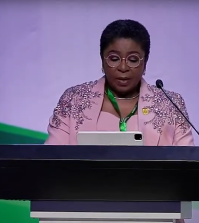Bill seeks to protect US federal scientists from political influence

A US committee has advanced a bill to protect federal scientists and their research from political interference.
The Scientific Integrity Act – which the House Science, Space and Technology Committee approved by 25 votes to six on 17 October – aims to protect science, the scientific process, and the communication of science from politics, ideology, and financial conflicts of interest.
If passed, the bill would prevent agency officials from interfering with scientific research, including blocking the distribution of data or public communications.
It would prohibit agencies from allowing “political considerations” to impact scientific conclusions, impeding the “timely release” of scientific or technical findings, or coercing or intimidating employees to alter those findings. It would ensure agencies only select and retain candidates for scientific positions based on their expertise, experience and credentials. And it would give scientists the right to review information their agencies distribute about their work, to correct any technical inaccuracies, and to talk directly to the media if contacted.
Agencies would also have to establish “enforcement processes” that provide federal scientists with the opportunity for a hearing and an appeal when they feel their rights under the bill have been violated.
Broken system
The news comes after a report from the Brennan Center’s National Task Force on Rule of Law & Democracy, a bipartisan group of former government officials, found that the system for protecting federal scientists from political interference is ineffective.
The report said that federal science is increasingly politicised, leading to a “crisis point” in which data is tampered with; career researchers are retaliated against for political purposes; advisory committees staffed by scientists are undermined and sidelined; and research and analysis is suppressed from public view.
This is backed up by a Union of Concerned Scientists survey, which last year found that 50% of federal employees felt political considerations were hindering agencies’ ability to make science-based decisions.
The authors of the Brennan Center report – led by former US attorney Preet Bharara and Christine Todd Whitman, head of the Environmental Protection Agency under president George Bush – noted that political interference in federal science dates back more than a century, but argued that it had worsened under recent administrations. Both the George Bush and Barack Obama administrations violated standards of scientific independence, they said, though the problem has accelerated under president Trump.
The report highlighted “almost weekly violations of previously respected safeguards” and cited a number of instances of the current administration meddling in scientific work, manipulating research and restricting access to federal data. Examples included prohibiting scientists from attending conferences, instructions to avoid phrases such as “climate change”, and alterations to federal environmental impact studies. In one case, a top climate scientist at the Interior Department was reassigned to an accounting role after he highlighted the dangers posed by climate change.
“President Trump’s multi-agency assault on environmental standards has hinged on efforts to distort, bury and even rewrite credible public scientific findings,” representative Paul Tonko, who introduced the bill, said earlier this year.
Politicisation not yet illegal
The Brennan Center group applauded President Obama for signing an executive order requiring scientific integrity policies at every agency across government, but noted that work remains incomplete. Lawsuits under the Administrative Procedures Act are time-consuming, it said, and many “egregious cases of politicisation” are not illegal under the law.
The authors called on Congress to pass a law clearly designating any tampering with science or research as illegal, and prohibiting any discrimination against scientists.
“We have big problems to solve in this nation,” they said. “If we cannot agree on the facts underlying potential solutions to those problems, and we do not have qualified and dedicated people in place to develop and execute on them, we will imperil the future of our democracy.”
The new bill was designed with the Brennan Centre group’s recommendations in mind, and aims to reverse some of the damage that has been done.
“At its heart, science doesn’t serve political power, it just tries to tell us the truth,” Tonko said. “In contrast, when we allow political power to interfere with our public science, the result is lost rights and freedoms, lost wages to medical bills, burned or flooded homes, lost years from our lives and the irreplaceable loss of loved ones. These are the consequences that scientific integrity policies exist to prevent.”
More than 20 agencies currently have scientific integrity policies, and these might require amendment to comply with the legislation if it were signed into law. Under the bill, all agencies involved in scientific work would appoint a “scientific integrity officer”: a career scientist who would be responsible for overseeing those policies, creating training programmes to inform employees of their new rights, and report any violations to Congress annually.























